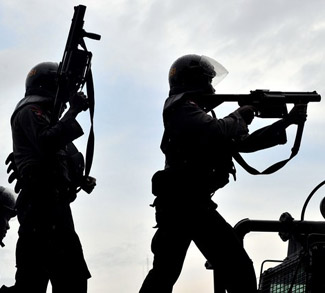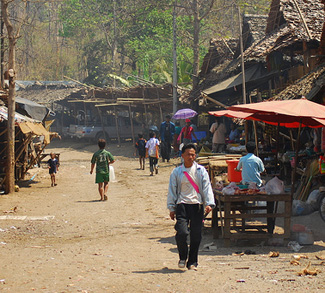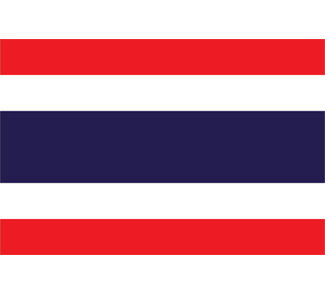Summary
Bomb explosions rocked the Thai capital, Bangkok, with multiple injuries, as anti-government protesters continue their occupation of the Prime Minister’s compound and Bangkok International Airport. Pro-government protesters began entering Bangkok today to confront the anti-government forces. The Thai Army remains uncommitted as the major bloody showdown looms.
Analysis
Thailand’s volatile political situation is balancing on the brink today as pro-government supporters were bussed into the capital to challenge and confront the anti-government protesters that have taken over Bangkok.
Meanwhile, multiple explosions ripped through the capital, including ones at the Prime Minister’s compound, an anti-government television station, and on a road to the main entrance to Bangkok International Airport, injuring at least 51 people. The Prime Minister’s compound has been occupied by anti-government protestor’s from the People’s Alliance for Democracy since August, while Bangkok International Airport was taken over by a throng of thousands of anti-government protestors on Wednesday November 26, stranding over a 100,000 travellers, including the Prime Minister himself, and affecting worldwide air travel schedules.
The People’s Alliance for Democracy (PAD), under senior protest leader Chamlong Srimuang, is demanding the outright resignation of Prime Minister Somchai Wongsawat. Ostensibly, the occupation of Bangkok International Airport was to prevent the landing of Wongsawat’s government plane from abroad, although the strike at the heart of Thailand’s major tourism industry threatens to have more long-term consequences.
Somchai is the brother-in-law of deposed ex-Prime Minister Thaksin Shinawatra, who was ousted in a military coup in 2006, fleeing in exile after being indicted on corruption charges at home. Earlier this month, the British rejected Thaksin and his wife’s visa, jeopardizing their chances to escape trial in Thailand by seeking political asylum abroad. It is due to the fact that anti-government protestors from the PAD have alleged nepotism against Thaksin’s brother-in-law, current Prime Minister Somchai, demanding the latter’s resignation.
The Thai Army, a constant player in Thai domestic politics, has refused to intervene, and local and internal state police have similarly refused to take sides, although they continue to monitor the protests. However, the safety of protesters has often been compromised as pro and anti-government factions have clashed on the streets of Bangkok, often with bloody and violent results.
It is for this reason that the pro-government protesters swarming in from the countryside, apparently organized from afar by Somchai, will almost certainly climax in a bloody confrontation on the streets of Bangkok.
Even though the Thai Army is currently distracted with an intermittent border dispute with Cambodia, expect some sort of army intervention to stabilize a political situation that is quickly degenerating into chaos and anarchy, whether directly, on the streets of Bangkok, or indirectly, in the power halls of the Thai political establishment.
Manjit Singh is a contributor to Geopoliticalmonitor.com



